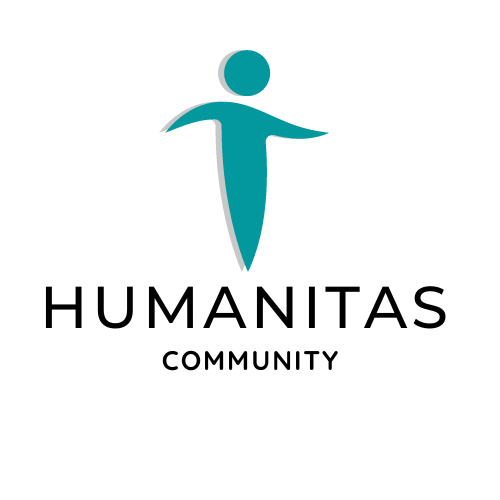15 de enero de 1932, un grupo de docentes funda la Sociedad de Maestros de Instrucción Primaria. Esta sociedad tenía el objetivo de impulsar la educación infantil en Venezuela, y, de alguna manera mejorar las condiciones de los educadores venezolanos.
Eran tiempos de la dictadura de Juan Vicente Gómez, la cual no vio esto con tan buenos ojos. Sin embargo, 13 años más tarde, el gobierno de Medina Angarita, el cual en algunos aspectos no se distinguía mucho del de Gómez, pero tenía cierta mayor afinidad con las libertades civiles y políticas, decreta esa fecha como el Día del Maestro en conmemoración de los docentes venezolanos.
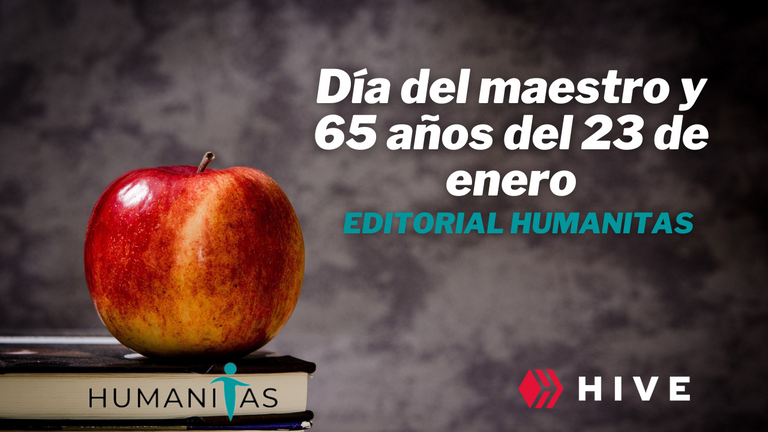
Iniciamos este primer post editorial de la comunidad Humanitas del año 2023 con una muy breve remembranza histórica de lo que fue el origen del Día del Maestro en Venezuela. Desde Humanitas buscaremos, a través de post editoriales que serán publicados periódicamente, traer contenidos que aporten alguna reflexión en torno a lo humano a la comunidad, promoviendo así el conocimiento humano y las humanidades en todas sus ramas en la Web 3 y la blockchain de Hive.
¿Qué sería de nosotros sin los maestros? Esta pregunta se encuentra latente hoy en día en nuestro país, pues sabemos que la situación actual de la educación, no solo infantil sino en general, no es precisamente la mejor de su historia. Sin duda, parte importante de nuestro conocimiento y habilidades son adquiridas en nuestra niñez, y en la ausencia o indisposición del maestro ¿Qué se hace con la educación del niño? Esta es definitivamente una de las problemáticas más importantes de nuestra sociedad actualmente.
Esta labor tan importante no siempre ha sido tan bien recompensada a lo largo de toda la historia, y no solo en Venezuela sino en el mundo. Pero, cabe destacar que una buena parte de los maestros lo son, más allá que por la remuneración económica, por vocación. Esto no deja de lado o invalida el intento de conseguir mejores condiciones económicas, pero nos deja la reflexión acerca de la sociedad que vamos formando a futuro. Un maestro no es solamente quien trabaja en un salón de clases, puesto que los padres y el entorno en general también pueden ser de alguna forma una fuente de conocimientos y experiencias. Delegar por completo esta función a la escuela puede no ser siempre lo ideal, aunque también es evidente que el contexto sociocultural, entre otros factores, pueden impedir que el niño pueda obtener una educación adecuada.
El filósofo Sócrates nos enseñó lo mucho que se puede aprender mediante el diálogo y la constante puesta a prueba de las ideas, sin llegar a escribir una sola palabra. No es un secreto que los niños aprenden a hablar antes que escribir, por lo que podría decirse que el maestro debería poder establecer un diálogo verbal con ellos, es decir, llegar desde la empatía o entendimiento.
Platón creía en la existencia de un mundo de las ideas. La educación sería una manera de acceder a él. Podríamos hablar acá de ciertas cosas abstractas como las matemáticas, que emplean mucho de la razón. Pero, más allá de esto, se trata de la interiorización de las ideas y el pensamiento. Podemos evidenciar entonces que educar es una tarea que implica ciertas habilidades y vocación. Es por ello que Platón también nos dejó la siguiente frase:
cualquier hombre es capaz de tener hijos, pero no cualquiera es capaz de educarlos

Es debido a esto que, a pesar de que los padres pueden ser también una fuente importante de educación y que delegar esta función totalmente a la escuela no sería tampoco lo ideal, los maestros siempre serán importantes o, mejor dicho, indispensables, para la formación de una sociedad.
23 de enero de 1958
Al día de hoy, se cumplen 65 años de un suceso que marcó la historia contemporánea de la sociedad en Venezuela. Y es por ello que traemos a colación esta reflexión en Humanitas. Precisamente, durante el gobierno de Marcos Pérez Jiménez, por motivos políticos, se cambió la fecha del día del maestro para el 29 de noviembre. Pero, tras su caída, el 23 de enero de 1958, se restauró la efeméride al 15 de enero.
¿Qué se celebra el 23 de enero? En palabras simples, podría decirse que se trató del fin de una dictadura y el inicio de una nueva época democrática. Creo que es obvio que el deseo de la mayoría de las personas en una sociedad es vivir en un entorno libre donde pueda prosperar. El paso de una dictadura a una democracia demarca una transición que implica fenómenos complejos, que escapan también del alcance directo de las personas de a pie.
Algunas veces, la denominación de dictadura opaca un poco lo positivo que se pudo lograr en dichos periodos de tiempo, más allá de si hubo aspectos negativos o no. En realidad, las personas de a pie no ven gran diferencia entre vivir en dictadura o no, aunque esto no niega que lo más deseable y práctico sea la democracia. En realidad, lo que tiene un impacto positivo en su calidad de vida y libertad, son factores que van más allá de la aparente democracia que dicen aplicar sus gobernantes. En el mundo hay y ha habido gobiernos autoritarios con un elevado desarrollo económico e incluso humano, y hay y ha habido democracias con un elevado nivel de pobreza. Algunos, con razones válidas, pueden no confiar o creer en la democracia (por ejemplo, Platón), pero, hasta el momento, es el sistema más “práctico” de aplicar en la mayoría de los países actualmente para mantener cierta estabilidad.
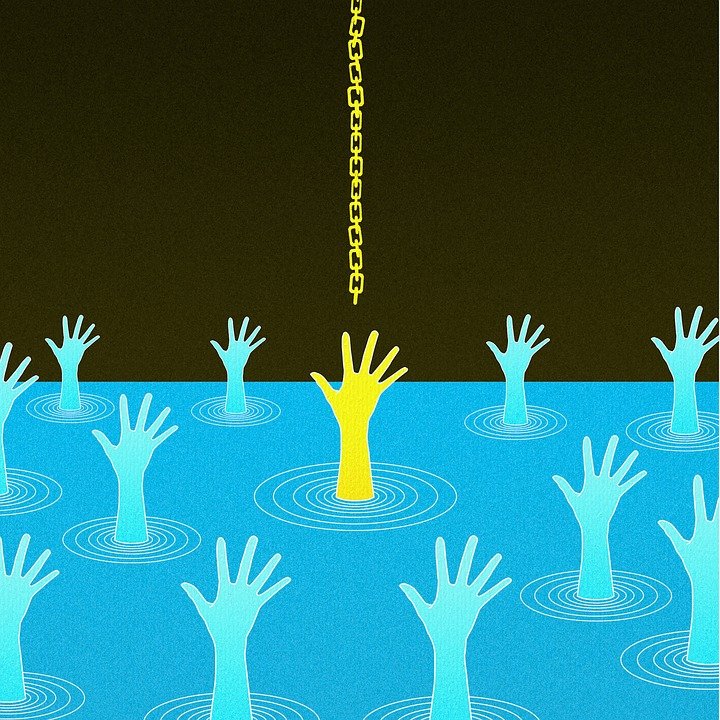
Mis abuelos y bisabuelos pueden decir algo al respecto, ya que son quienes vivieron dicha época (1958). Mis abuelos la describían como una época próspera y segura, siempre y cuando no hicieras algo que disguste a las autoridades. Sin embargo, es válido mencionar también que hubo cosas negativas, tal como sucede siempre en ese contexto de sociedad y gobierno. La historia es más complicada que solo decir bueno y malo. Pero, en medio de todo esto ¿Qué reflexión podemos tener al respecto?
El ser humano siempre busca vivir de la mejor manera posible y construir la mejor sociedad posible. Una tarea complicada, pero que depende mucho de nuestra formación como ciudadanos, la educación, cultura, cosas que inician en nuestros valores y principios. A veces, puede haber factores y condiciones que incrementen las dificultades, pero, en el fondo, tenemos las herramientas para surgir. A veces es necesario algún cambio, pero, también en el fondo, depende de la sociedad misma mantenerse en un camino adecuado con el tiempo. El 23 de enero lo recordamos como una fecha de cambios importantes, los cuales de cierta forma fueron necesarios, y que debemos tener siempre presente para construir una mejor sociedad.
Gracias por tu tiempo.
Esta editorial ha sido elaborada por nuestro moderador @acont
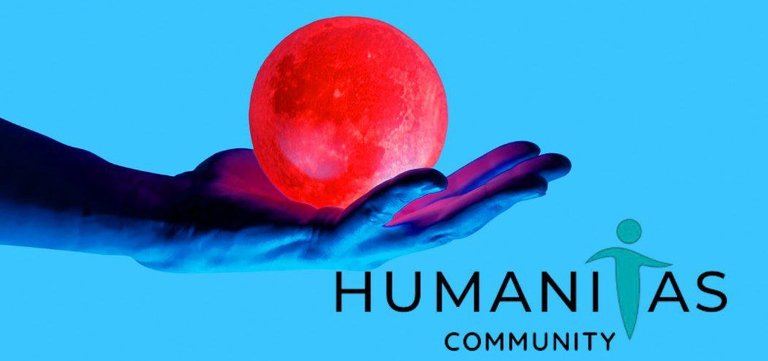
ENGLISH
On January 15, 1932, a group of teachers founded the Society of Teachers of Primary Instruction (Sociedad de Maestros de Instrucción Primaria). This society had the objective of promoting children's education in Venezuela, and in some way improve the conditions of Venezuelan educators.
These were times of the dictatorship of Juan Vicente Gómez, which did not see this in such a favorable light. However, 13 years later, the government of Medina Angarita, which in some aspects was not very different from that of Gómez, but had a certain greater affinity with civil and political liberties, decreed that date as Teacher's Day in commemoration of Venezuelan teachers.
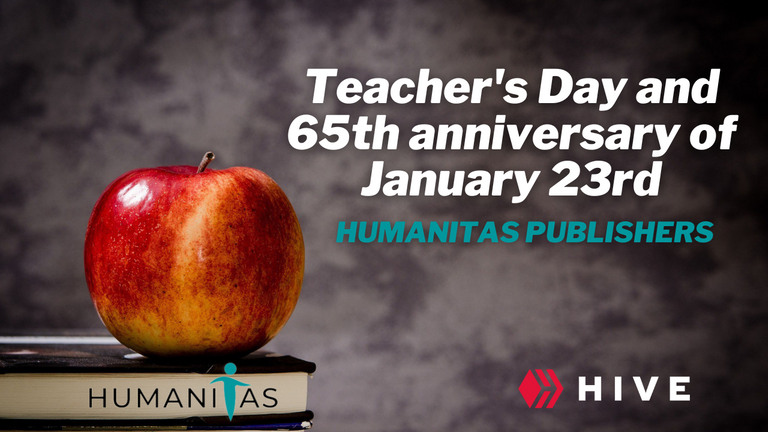
We begin this first editorial post of the Humanitas community of the year 2023 with a very brief historical recollection of the origin of the Teacher's Day in Venezuela. From Humanitas we will seek, through post editorials that will be published periodically, to bring contents that bring some reflection around the human to the community, thus promoting human knowledge and humanities in all its branches in Web 3 and the Hive blockchain.
What would become of us without teachers? This question is latent today in our country, as we know that the current situation of education, not only for children but in general, is not exactly the best in its history. Undoubtedly, an important part of our knowledge and skills are acquired in our childhood. And in the absence or indisposition of the teacher, what is done with the child's education? This is definitely one of the most important issues in our society today.
This important work has not always been so well rewarded throughout history, not only in Venezuela but in the world. However, it is worth mentioning that a good part of the teachers are so, more than for the economic remuneration, because of their vocation. This does not leave aside or invalidate the attempt to achieve better economic conditions, but it leaves us to reflect on the society we are forming in the future. A teacher is not only the one who works in a classroom, since parents and the environment in general can also be in some way a source of knowledge and experience. To delegate this function completely to the school may not always be ideal, although it is also evident that the sociocultural context, among other factors, may prevent the child from obtaining an adequate education.
The philosopher Socrates taught us how much can be learned through dialogue and the constant testing of ideas, without ever writing a single word. It is no secret that children learn to speak before they learn to write, so it could be said that the teacher should be able to establish a verbal dialogue with them. Reach from empathy or understanding.
Plato believed in the existence of a world of ideas. Education would be a way to access it. We could speak here of certain abstract things such as mathematics, which employ a lot of reason. But, beyond this, it is about the internalization of ideas and thought. We can see then that educating is a task that implies certain skills and vocation. That is why Plato also left us the following sentence:
any man is capable of having children, but not everyone is capable of educating them.

That is why, although parents can also be an important source of education and delegating this function entirely to the school would not be ideal, teachers will always be important, or rather indispensable, for the formation of a society.
January 23, 1958
Today marks the 65th anniversary of an event that marked the contemporary history of Venezuelan society. And that is why we bring up this reflection in Humanitas. Precisely, during the government of Marcos Perez Jimenez, for political reasons, the date of the teacher's day was changed to November 29. But, after his fall, on January 23, 1958, the date was restored to January 15.
What is celebrated on January 23? In simple words, it could be said that it was the end of a dictatorship and the beginning of a new democratic era. I think it is obvious that the desire of most people in a society is to live in a free environment where they can prosper. The transition from dictatorship to democracy marks a transition that involves complex phenomena, which are also beyond the direct reach of average people.
Sometimes, the denomination “dictatorship” somewhat obscures the positive things that could be achieved in such periods of time, beyond whether there were negative aspects or not. In reality, ordinary people do not see much difference between living in a dictatorship or not, although this does not deny that democracy is the most desirable and practical. In reality, what has a positive impact on their quality of life and freedom are factors that go beyond the apparent democracy that their rulers claim to apply. In the world there are and have been authoritarian governments with high economic and even human development, and there are and have been democracies with a high level of poverty. Some, with valid reasons, may not trust or believe in democracy (e.g. Plato), but, so far, it is the most "practical" system to apply in most countries today to maintain some stability.

My grandparents and great-grandparents can say something about this, since they are the ones who lived through that era (1958). My grandparents described it as a prosperous and safe time, as long as you did not do something to displease the authorities. However, it is also valid to mention that there were negative things, as always happens in that context of society and government. History is more complicated than just saying good and bad. But, in the midst of all this, what reflection can we have about it?
Human beings always seek to live in the best possible way, and to build the best possible society. A complicated task, but that depends a lot on our formation as citizens, education, culture, things that start in our values and principles. Sometimes there may be factors and conditions that increase the difficulties, but, deep down, we have the tools to emerge. Sometimes some change is necessary, but, also in the end, it is up to society itself to stay on the right path over time. We remember January 23 as a date of important changes, which in a certain way were necessary, and which we must always keep in mind in order to build a better society.
Thank you for your time.
